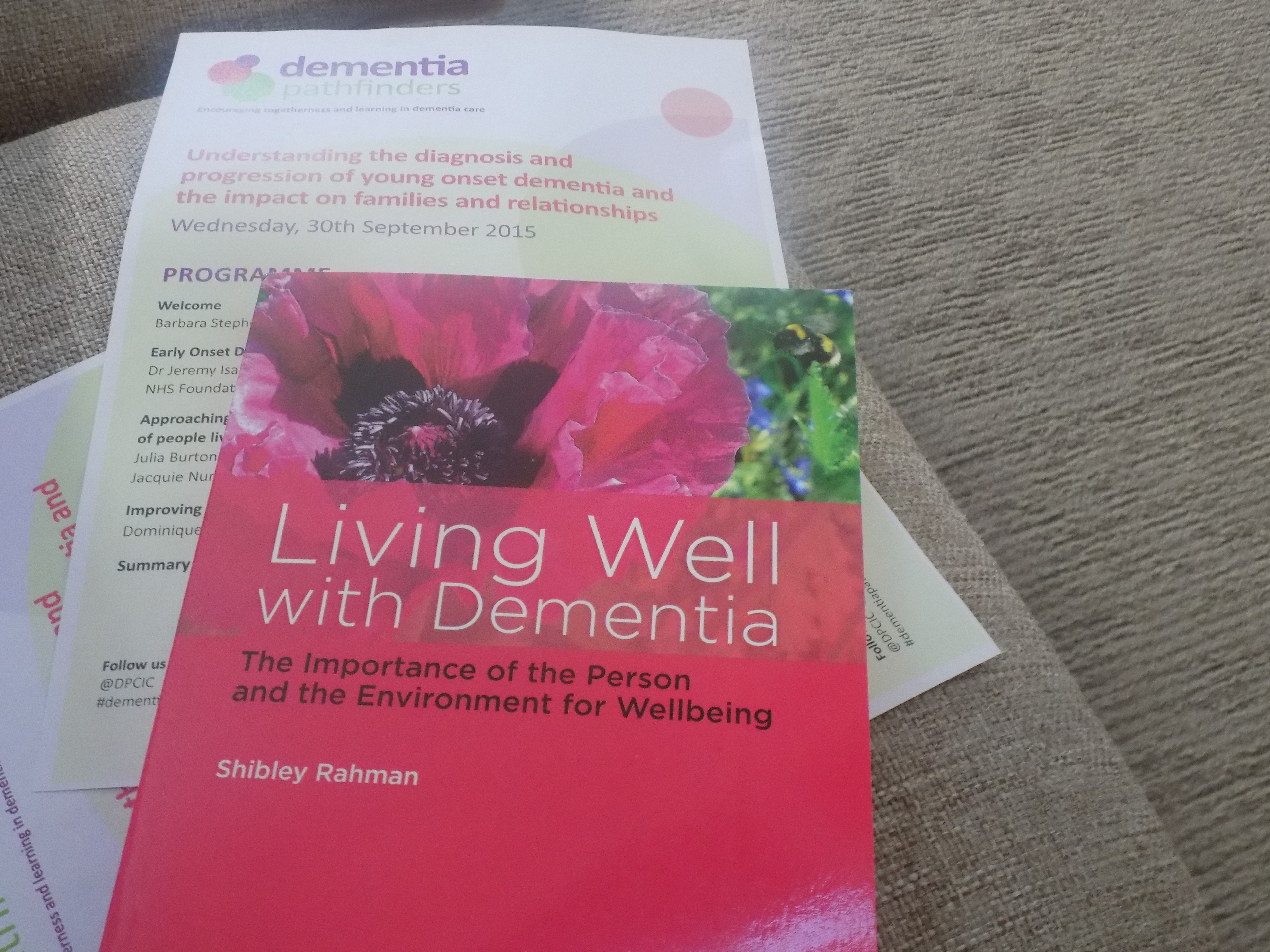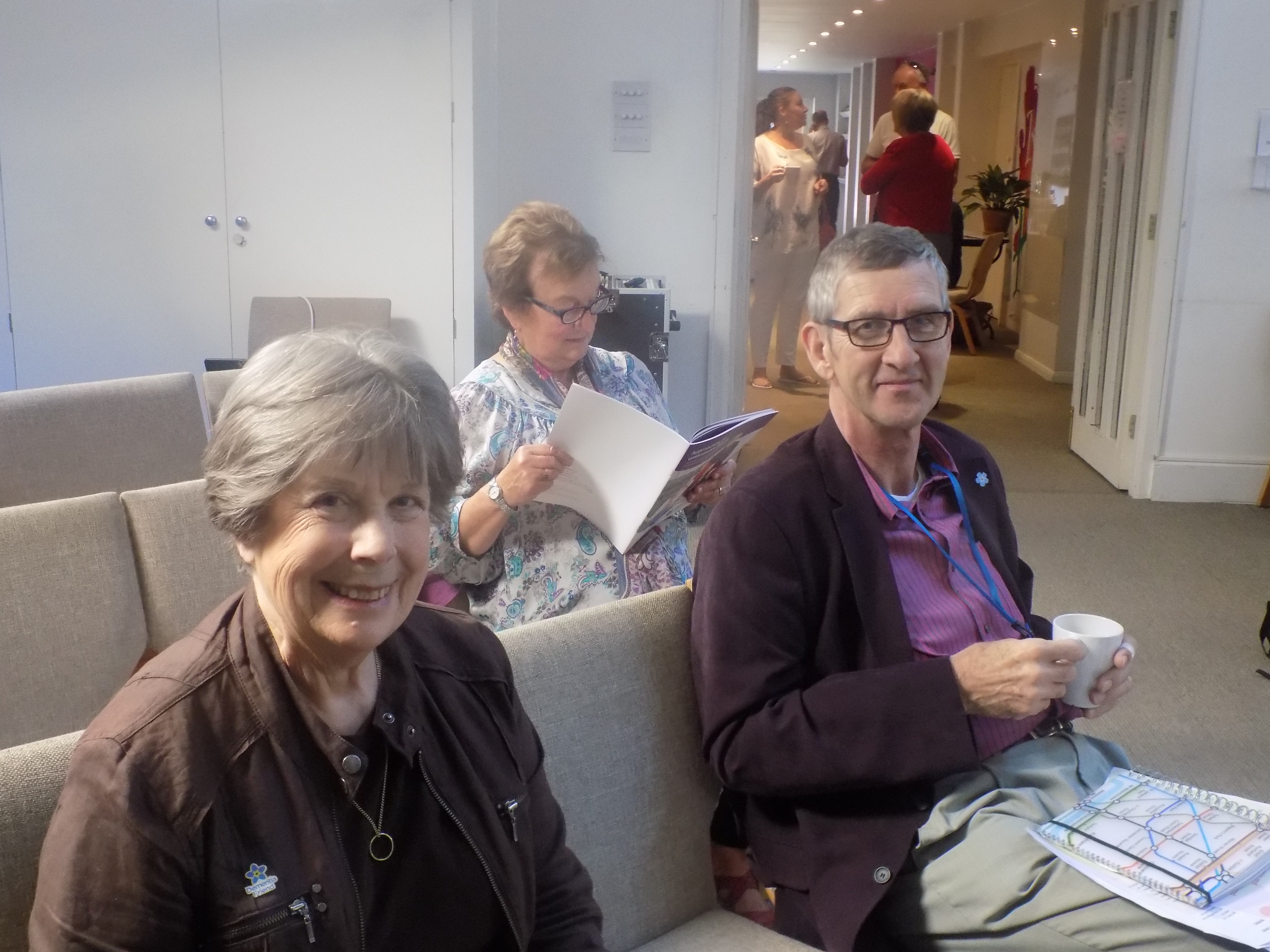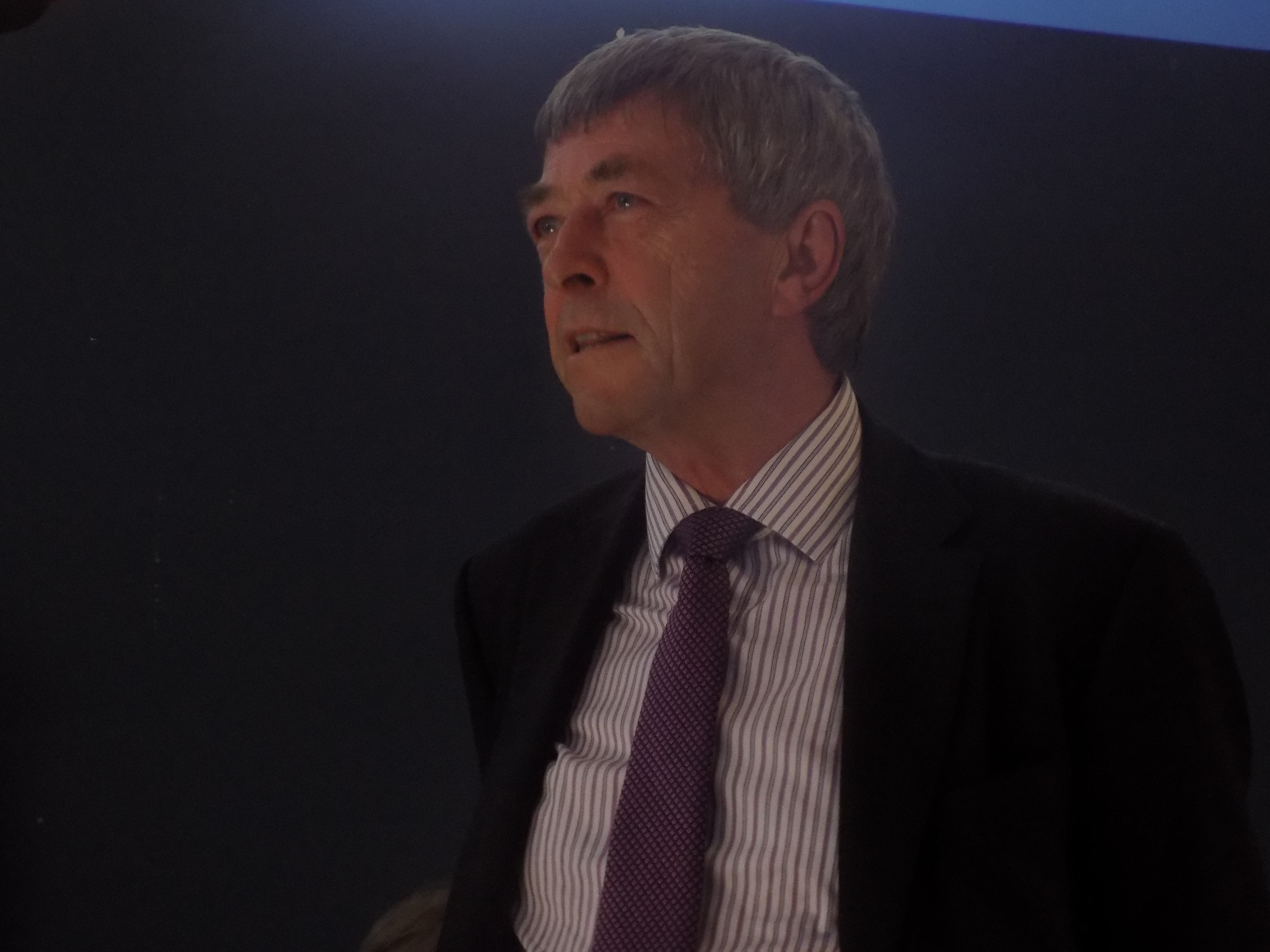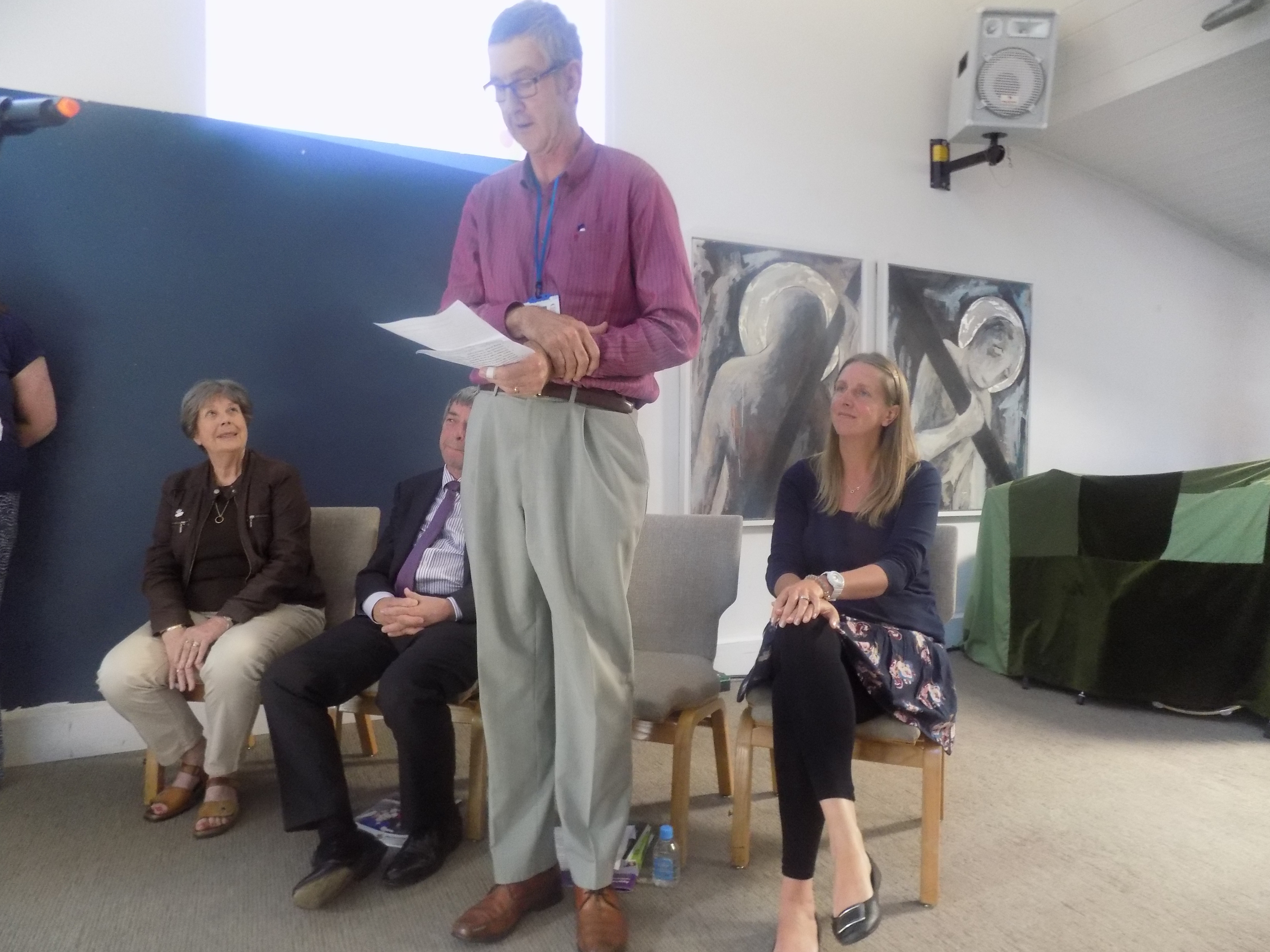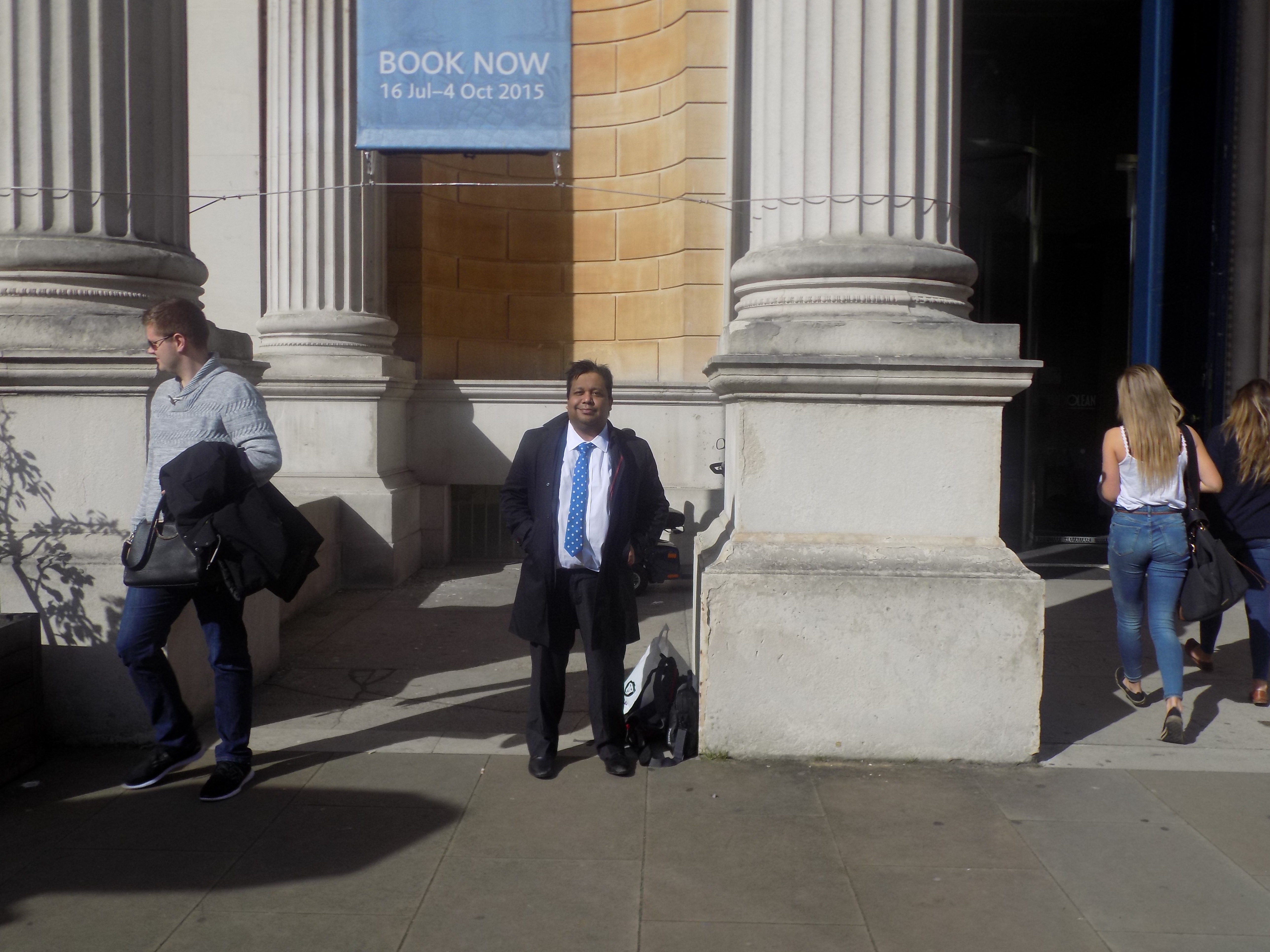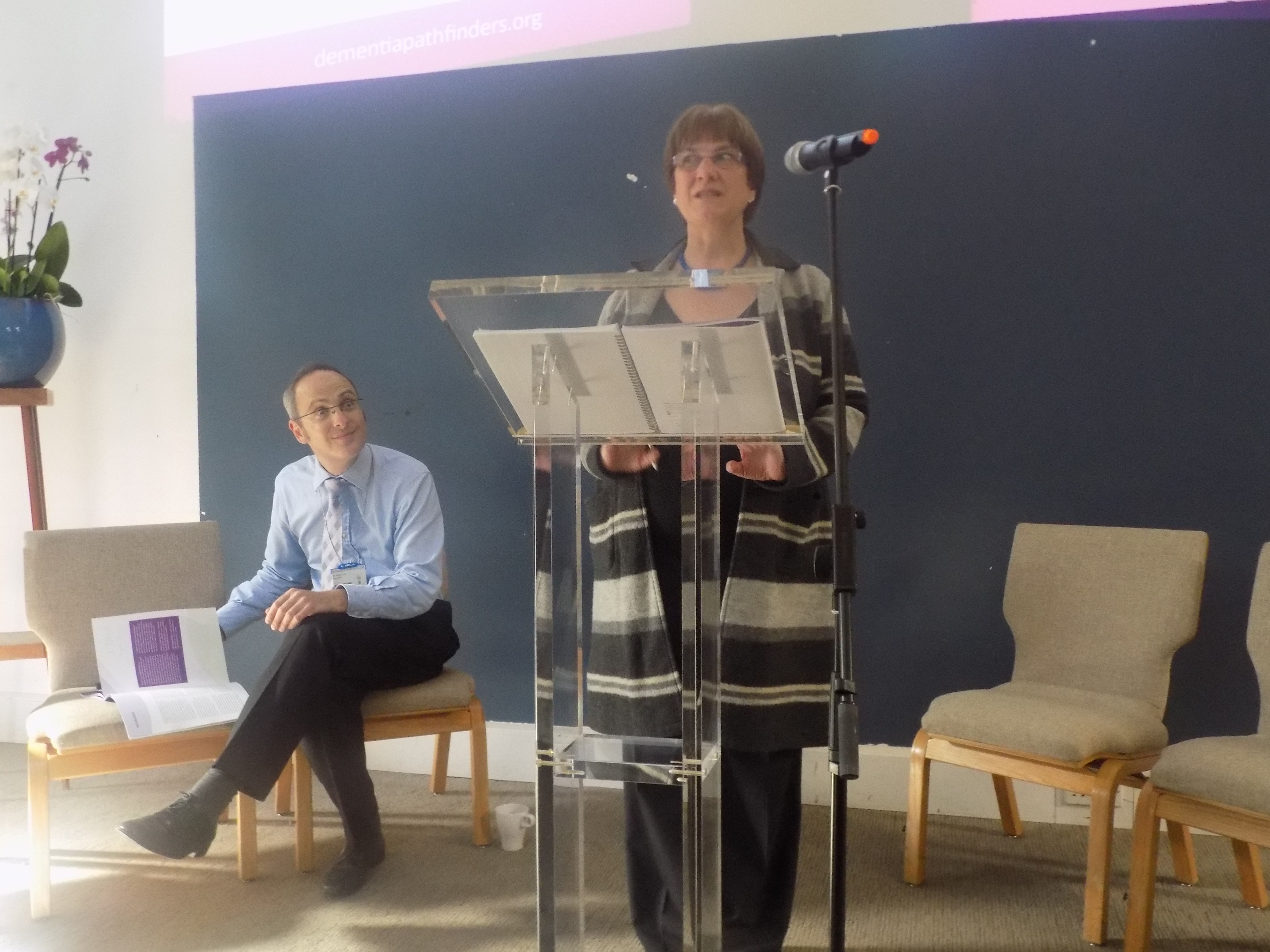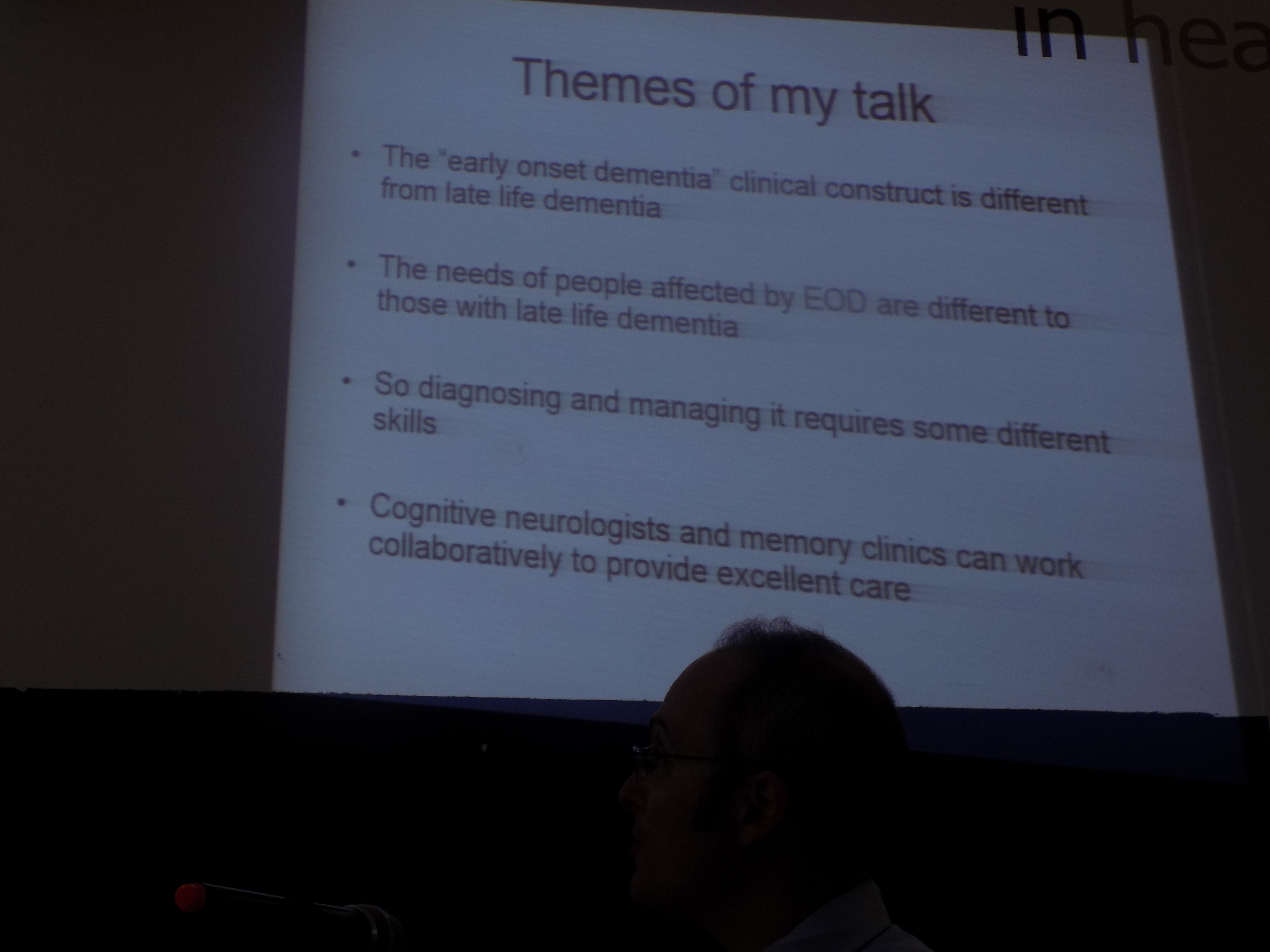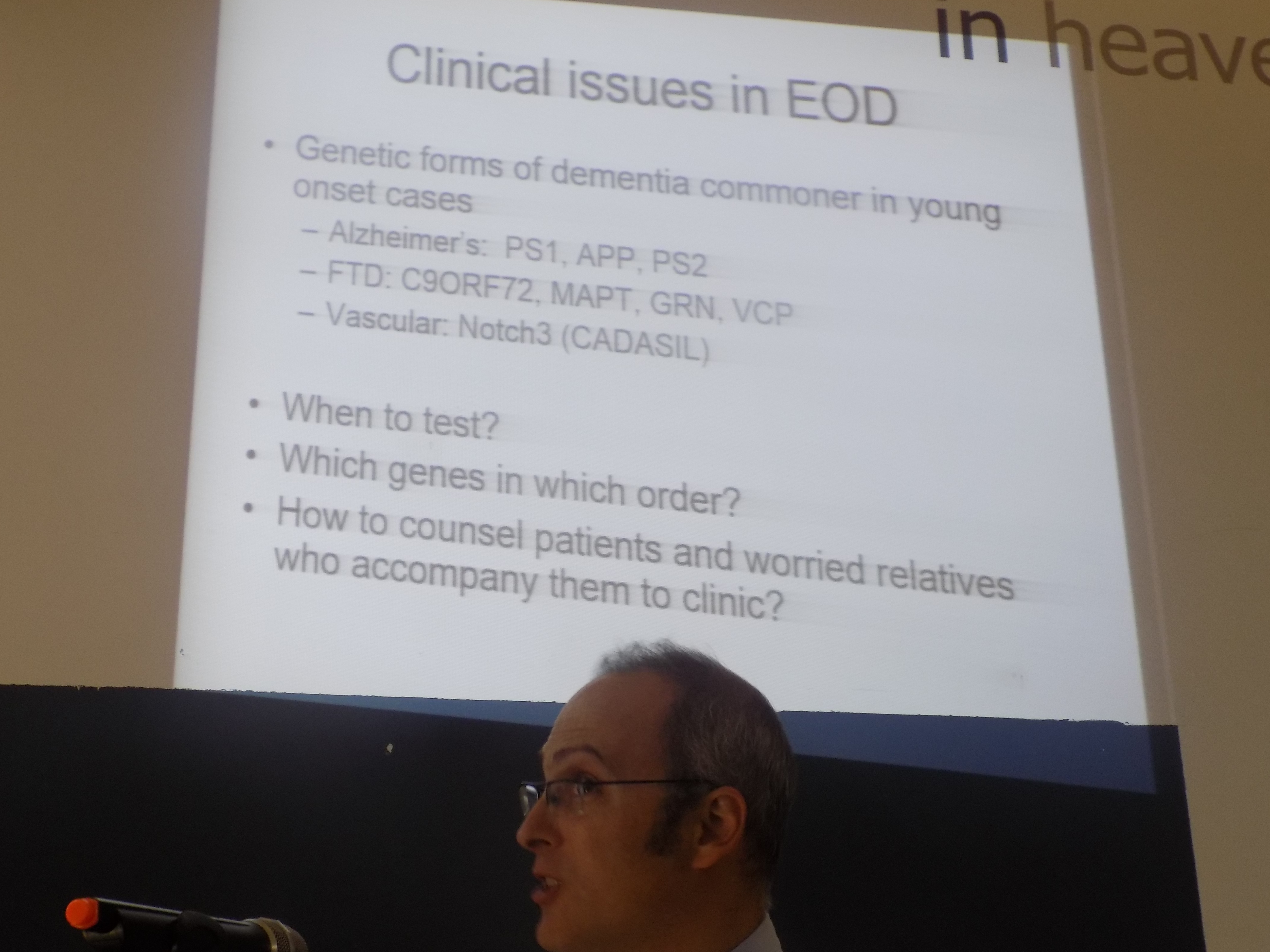Good afternoon.
I’m sorry I’m not the most interesting Jeremy in British politics right now – but I do have the most interesting job, and there is no greater privilege in government than being responsible for our NHS.
To do that I’m supported by a fantastic ministerial team.
So let me start by thanking Alistair Burt for his avuncular kindness, Ben Gummer for his youthful energy, Jane Ellison for her good-natured calmness, George Freeman for his great passion, and David Prior for his worldly wisdom – what a team and I am lucky to have them.
My day as Health Secretary usually starts the same way.
When I arrive in the office there’s a pink folder waiting for me on my desk.
It contains a letter from a member of the public about something that’s gone wrong in the NHS.
Of course these letters are not typical of much brilliant care that happens every day in our hospitals and surgeries.
But I know that if I ignore the things that go wrong, others will too.
I’ll never forget one letter.
A lady wrote to me about her brother who worked as a call centre manager.
He went to hospital for an operation because his back was in agony from a pinched nerve.
Things didn’t go well, including a feeding tube inserted incorrectly, a catheter left blocked for 2 days and cries for help left unanswered in what ended up being a horrible last two weeks of his life.
As Health Secretary you have a very simple choice.
Do you ignore these problems and try to sweep them under the carpet or do we confront them head on and sort them out?
It’s a political choice, too.
Because it’s never comfortable for any government to admit when things go wrong.
But if you care for something – as David Cameron always has for our NHS – you want it to be the best.
I’ll tell you someone else who wanted it to be the best. Nye Bevan, the Labour Welsh firebrand who set up the NHS in 1948 – four years after a Conservative Health Minister suggested it.
Now Bevan would probably turn in his grave if he knew he was being quoted at a Conservative Conference.
But he used a good phrase to explain what he was trying to do.
He said he wanted to ‘universalise the best.’
If the NHS is about equity, it has to be about excellence.
If someone wealthy lives near a hospital with problems, they have alternatives.
But everyone else depends on that hospital.
And if we don’t do everything in our power to improve the quality of that hospital we betray them – and we betray the founding vision of the NHS which says that however fraught your life, however frail your voice our society has not forgotten you because we have an NHS.
The vision of Nye Bevan before.
The vision of a one-nation Conservative Party today.
But a vision that, in office, the modern Labour party forgot.
Their pride in having set up the NHS blinded them to the dangers of ignoring poor care.
Targets mattered more than people.
Good news mattered more than good care.
So when we faced up to the problems of Mid Staffs – which happened on Labour’s watch – they said we were ‘running down the NHS.’
They even tried to vote down the law that set up an independent Chief Inspector of Hospitals.
The true party of the NHS insists on high standards for patients in every corner of the NHS, however tough and challenging that might be.
And although there is much still to do, the results so far speak for themselves.
24 major hospitals have been put into special measures in the two years since the Francis Report into Mid Staffs.
People said no one would want to work at those hospitals.
That they would sink in a spiral of decline. That things would go from bad to worse.
Instead those Trusts changed their boards, recruited hundreds of doctors and nurses, and transformed the care they give. 9 have already come out of special measures and according to one study up to 450 lives are being saved every year as a result.
So let’s recognise the brilliant work of the doctors and nurses at Basildon, Tameside, King’s Lynn, East Lancashire, George Eliott, Bucks, Goole, Lincoln and Heatherwood and Wexham Park who have worked so hard to turn their Trusts round.
Across the NHS the effort to learn those lessons and improve care has never been higher. And I want to pay tribute to some of the achievements in the last 5 years.
Record numbers of doctors and nurses.
MRSA and CDiff rates halved.
Mixed sex wards eliminated.
Cancer survival rates at a record high.
Maximum waiting times introduced for mental health.
A million more operations every year.
And public satisfaction going up, now at near record levels.
Last year the independent Commonwealth Fund said that under the Coalition our NHS had become the best healthcare system in the world – better than France, better than Germany, better than the US – and here’s something for rugby fans – better than Australia! – so let’s hear it for all 1.3 million NHS staff working so hard in such challenging circumstances – the nurses, cooks, surgeons, cleaners, clinicians, physiotherapists, mental health professionals, porters and volunteers.
We are proud of every single one of you.
And not just the NHS – let’s recognise those working for local authorities to support our vital social care sector and public health programmes.
As you struggle with the pressures of a rapidly ageing population, you too have had many successes.
Integrated care finally becoming a reality thanks to the Better Care Fund.
Smoking rates at an all-time low.
Teenage drinking down and drug use halved in decade.
Teenage pregnancies at a 40 year low.
Yes the gaps between richer and poorer areas are still too high but we are making progress – and Conservative governments and Conservative Councils will never allow young people to have their future taken away by accidents of birth, or debt, or dependency, or addictions which destroy their dreams and take years off their lives.
I have a simple plan.
I want our party, the Conservative Party, to be the party of the NHS.
Some people listen to our opponents and think differently.
So we have to prove it.
And we are.
For two elections in a row, David Cameron and George Osborne promised more money for the NHS than any other party.
The extra £10 billion we have committed to the NHS this parliament is a massive commitment in the face of the worst deficit in our peacetime history.
But what Conservatives know is that a strong NHS needs a strong economy.
We also know high quality public services are not just about what taxpayers put in – they are about what the public gets out.
That whether it’s schools, or police, or hospitals the truly progressive party is the one that fights for higher standards and tackles problems head on.
Like the issue of people who die when they shouldn’t because they are admitted to hospital over a weekend.
When we said in our manifesto, we were committed to 7 day services, it wasn’t just about the convenience of evening and weekend GP appointments, important though that is.
It was to end the scandal of 11,000 excess deaths each year because of what is known as the ‘weekend effect’ in hospitals.
We are not asking junior doctors to work longer hours – that wouldn’t be safe.
Nor is it our intention to cut doctors’ pay – and it is utterly irresponsible to try and scare people into believing we are.
But we do want to support the many doctors who do work weekends with properly staffed shifts, safe working hours and 7 day diagnostic services so that patients are not put at risk.
So I say to those people working very hard right now on the frontline, stand beside us as we address this.
What’s good for patients is good for doctors, so be our partners in building the safest, highest quality healthcare system in the world.
Now safe care is not just about weekend services.
How many of you know that there are around 200 deaths in our hospitals that could have been avoided every week?
We’re no better or worse than other countries – but that’s like a plane crash a week because of mistakes we shouldn’t be making.
Part of the reason is that across the world, often the culture in hospitals is wrong.
Put simply we make it too difficult for doctors and nurses to speak out about poor care.
Too many worry that if they own up to making a mistake or blow the whistle on poor care they will be fired – as they sometimes are.
As a result not only do we cause patients and families untold anguish as they search for the truth, we lose the chance to learn from those mistakes.
In our hospitals we need an honesty culture not a blame culture – which is why I asked Sir Robert Francis to do the first ever independent review into whistleblowing.
Some people say we don’t have enough money in the NHS to deliver the high standards of care we all want.
But it isn’t a choice between standards or money.
If someone catches MRSA in hospital, they stay in hospital for longer costing the NHS more money.
Safer care costs less, not more.
So let’s eliminate the waste from unsafe care and like the rest of the public sector make efficiencies and raise standards at the same time.
Our best hospitals like the Salford Royal down the road, Frimley in Surrey and Northumbria show us it can be done, so let’s learn from them and never waver in our commitment to high quality care in every corner of the NHS.
Now I want to talk about GPs.
Let me tell you about a wonderful GP in Essex.
Every week he asks his practice nurses to write the names of any patients they are worried about on post-it notes.
He then personally calls them to check up how they are.
We have many GPs like him.
But many more who want to be like him, but find they simply can’t deliver that kind of personal care because of targets and tick-boxes and rising appointment lists.
That kind of personal, proactive care should not be a relic of a bygone age.
It’s how we’ll make the NHS sustainable by keeping people healthy and happy at home without needing expensive hospital treatment.
So on Sunday we set out plans for a new contract that will support GPs to deliver evening and weekend care by working with other local surgeries and clinical staff.
We also announced a £750m scheme to improve primary care premises and technology to allow surgeries to expand and modernise their services.
And it’s why we are backing the NHS England Five Year Forward View which will connect the services offered by GPs, local hospitals and social care system to offer integrated care closer to home.
Right for GPs, right for the NHS and the social care system – and most importantly right for the patients.
Let me finish with a point about the culture in the NHS, perhaps the most important point of all.
If we’re going to change the culture to make it more focused on patients, governments too are going to have to change the way they run it.
The NHS is the fifth largest organisation in the world – only beaten in size by McDonalds (now you weren’t expecting the Health Secretary to mention McDonalds were you?), and also Walmart, the Red Army and the US Department of Defense.
Faced with such a large bureaucracy, health secretaries of all parties – quite understandably – have tried to make changes by introducing targets.
Individually those targets have worked – bringing down waiting times, speeding up A & Es, improving cancer care and so on – but collectively they have undermined the professionalism and sense of vocation that should be at the heart of medicine.
Now I’m not going to scrap every target because patients should never have to wait too long for treatment.
But we do believe peer-review, transparency and openness about performance is a better way to drive up standards than endless new targets.
So last year I launched a new website, MyNHS, where we publish more information about NHS performance than any other healthcare system in the world.
You can see how safe your local hospital is;
how good the food is;
how good your local GP surgery or care home is;
the mortality rate for your surgeon
and over 693,000 other pieces of data.
From next May we will go further with assessments on MyNHS about the overall quality of mental health and cancer care, area by area,
and because we still have too many avoidable deaths we’ll also publish avoidable death rates hospital by hospital.
Some people have criticised this as ‘naming and shaming’ – but there are no sanctions or punishments for those with low scores, just the opportunity to improve.
Transparency for patients, not targets for politicians.
A new culture where patients always come first.
Conference, our healthcare system has always faced challenges.
And our strongest weapon in the face of those challenges has always been our willingness to innovate.
We discovered penicillin, we pioneered anaesthetics, we made the first hip replacements possible and we unravelled DNA.
We gave Britain the NHS – and the world its first universal healthcare system.
And we’re not stopping.
We will soon be a world leader in curing rare diseases with our genomics programme;
a world leader in using transparency to drive up clinical standards;
a world leader in improving hospital safety.
All backed with the resources of a strong economy only a Conservative government can deliver.
Some say with pressures mounting and money so tight, we need to rein back our ambitions.
But I say the only way to meet the challenges we face is to raise our ambitions, face the storms and draw strength from the wonderful commitment of NHS staff and the British people who stand foursquare behind them.
Because with a one nation Conservative government, for our NHS the best is yet to come.
Thank you.
And here was the reaction of Richard Humphries, Director at the King’s Fund:







